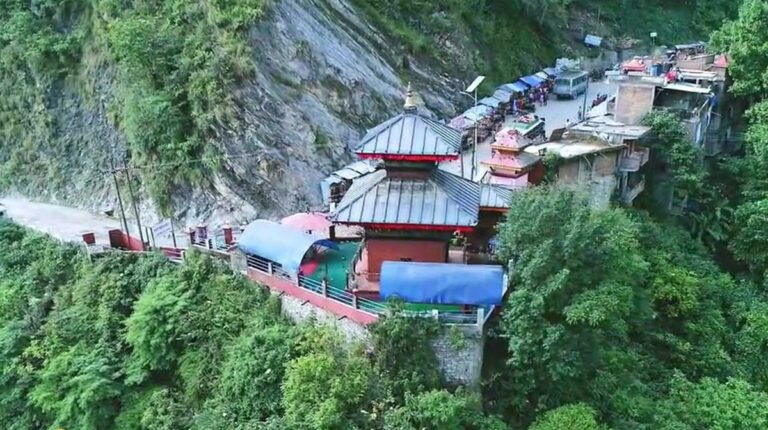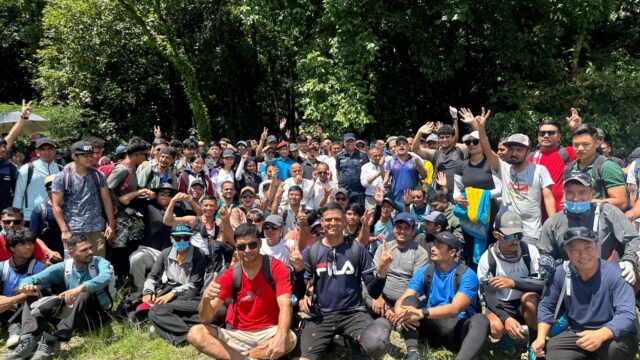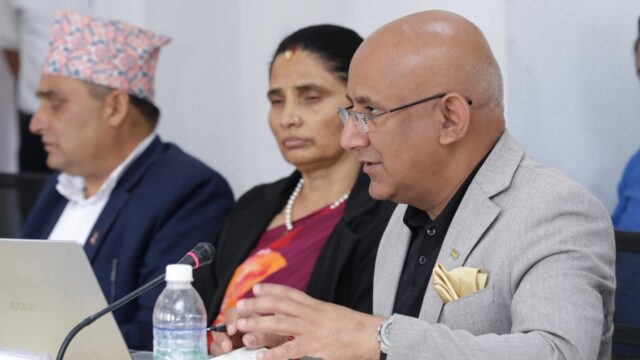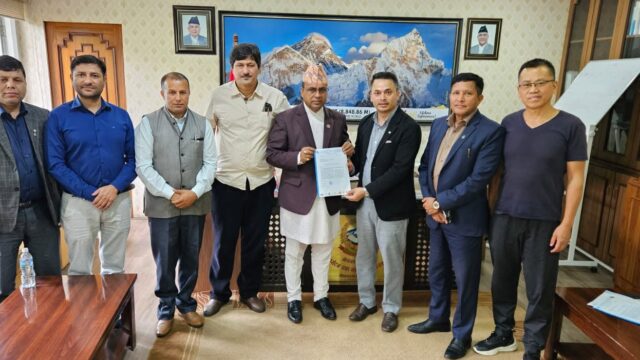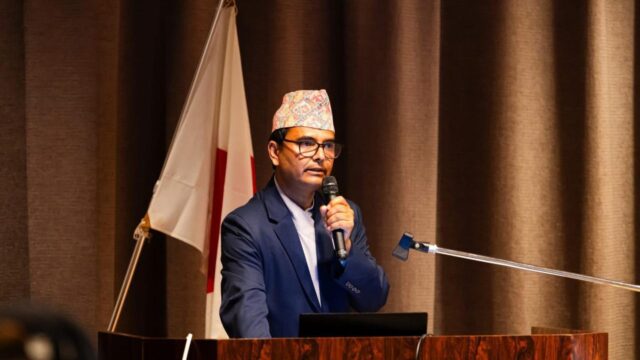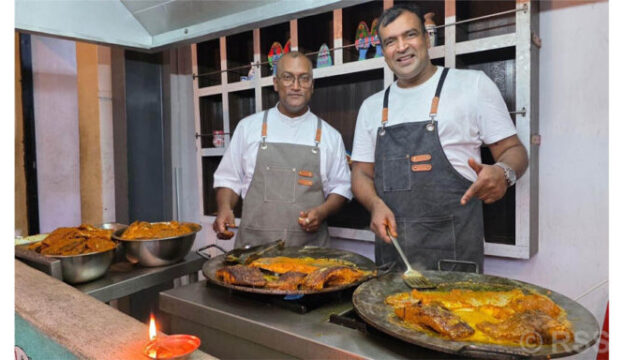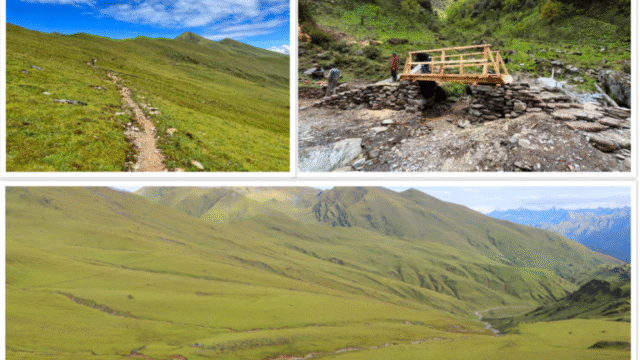To promote religious tourism in western Nepal, a cable car is set to be constructed near the renowned Supa Deurali Temple, one of the most visited pilgrimage sites in the region. This project aims to provide easier access to internal and international pilgrims who visit the temple each year seeking spiritual solace and blessings.
Municipality Greenlights the Project
The decision to initiate the cable car construction was formally approved in the recent municipal meeting held on Ashadh 13 (June 27) by the Sandhikharka Municipality. According to Mayor Krishna Prasad Shrestha, the municipality has agreed to recommend the registration of the company Supa Deurali Cable Car Pvt. Ltd. to carry out the project.
As per the plan, the cable car will stretch from the Supa Deurali Temple up to Masina Lek, which is expected to ease access to the high-altitude religious site, especially for elderly pilgrims and those unable to traverse the rugged terrain by foot or road.
Mayor Shrestha stated that the project will not only facilitate safer and faster travel for pilgrims but also help generate local employment and boost the overall tourism infrastructure in the region.
A Rise in Pilgrim Traffic Sparks the Initiative
The decision comes amidst a remarkable rise in both domestic and international pilgrim visits to Supa Deurali in recent years. According to Hari Khanal, Vice President of the Supa Deurali Temple Conservation Committee, thousands of devotees now travel to the temple each month, with numbers peaking during festivals and religious holidays.
The temple attracts devotees primarily from surrounding districts such as Kapilvastu, Dang, Pyuthan, Gulmi, and Rupandehi, with a growing number of pilgrims also arriving from neighboring Indian states such as Uttar Pradesh and Bihar. Many Indian pilgrims travel long distances to offer prayers at the temple, reinforcing its cross-border religious importance.
Chura Bahadur KC, Ward Chair of Ward No. 7, where the temple is located, confirmed that the volume of visitors has surged significantly and that the current infrastructure is insufficient to support this influx efficiently. He expressed confidence that the cable car project would revolutionize the pilgrimage experience by making the temple more accessible without disturbing its sacred and natural setting.
Faith and Belief Drive Pilgrimage
Supa Deurali Temple is not just a physical destination but also a deeply revered symbol of faith for countless devotees. Local belief holds that prayers offered at Supa Deurali are often fulfilled. Many people who face significant challenges in life, be it illness, legal matters, or family troubles, come to the temple seeking divine intervention.
There is a long-standing tradition of making vows at the temple (known as bhakal) and fulfilling them through offerings once prayers are answered. Pilgrims often bring he-goats (bokas) and young buffaloes for sacrificial offerings, as per customary rituals. Despite modern attitudes toward such practices, the tradition remains an essential aspect of devotion for many.
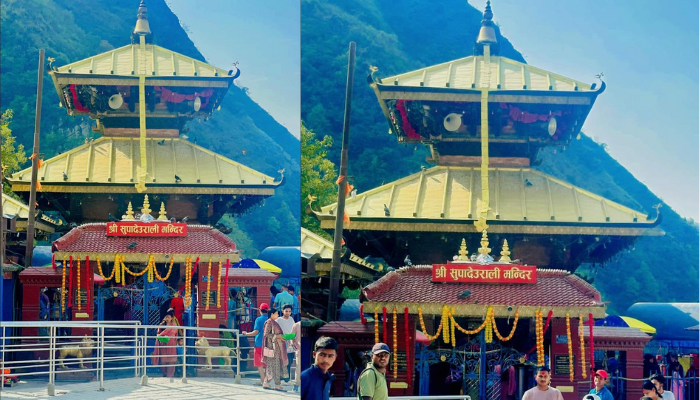
The temple, dramatically situated alongside a narrow, cliff-hugging road between rugged stone formations, provides both a challenging journey and a spiritually rewarding experience. Pilgrims believe that even the perilous road leading to the temple is a test of their dedication.
Improved Access, Preserved Sanctity
The cable car project is expected to reduce the difficulty and danger currently associated with accessing the temple by road. During the monsoon season, landslides and slippery roads often cause delays and accidents. The proposed cable car will provide a safer alternative, allowing more pilgrims to visit year-round without compromising the temple’s spiritual atmosphere or the natural beauty surrounding it.
While the project is still in its early phases, planners have indicated a commitment to maintaining the ecological and cultural integrity of the temple zone. Consultation with local stakeholders, including religious leaders and conservation groups, is expected to guide the design and implementation phases.
Local Economy and Tourism to Benefit
Beyond spiritual and logistical benefits, the cable car project is anticipated to stimulate the local economy by increasing tourist footfall and encouraging investment in nearby hotels, restaurants, and shops. Locals hope the project will bring jobs in construction, operations, and tourism services, offering a sustainable source of income for residents.
Mayor Shrestha expressed optimism that Supa Deurali will soon be on the national map as a major religious tourism hub, attracting even greater numbers of pilgrims and tourists in the years to come.
Looking Ahead
With the recommendation for industry registration now in place, Supa Deurali Cable Car Pvt. Ltd. is expected to begin technical and environmental assessments soon. Once approved, construction could begin within the next year, marking a transformative milestone in the region’s religious tourism landscape.
In a country like Nepal, where religion, nature, and culture are deeply intertwined, the Supa Deurali cable car represents a forward-looking approach that balances devotion and development, tradition and technology.
For devotees who believe in the divine power of Supa Deurali, the journey to her temple is set to become more accessible, without losing the spiritual essence that has drawn generations of pilgrims to her sacred doors.
